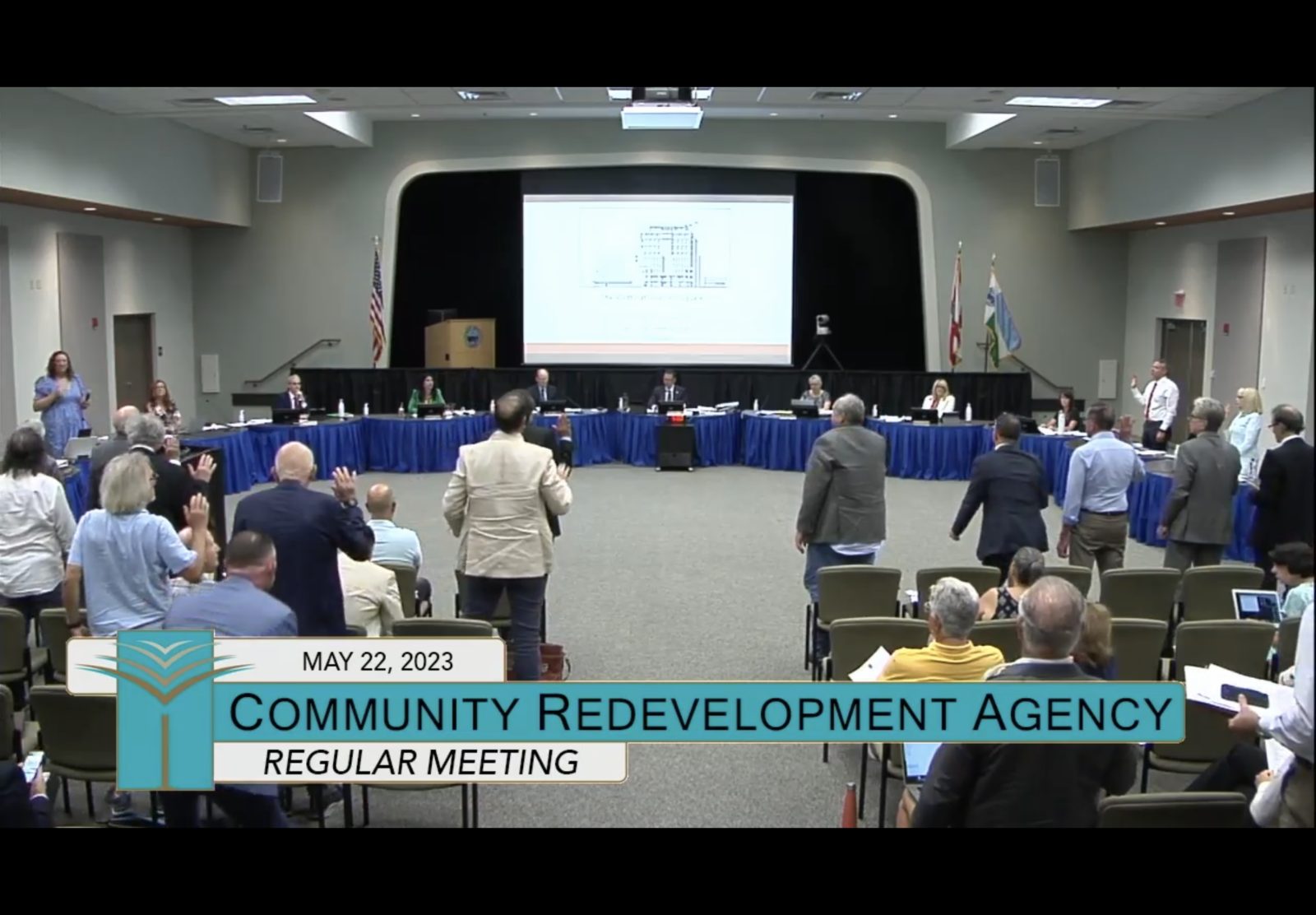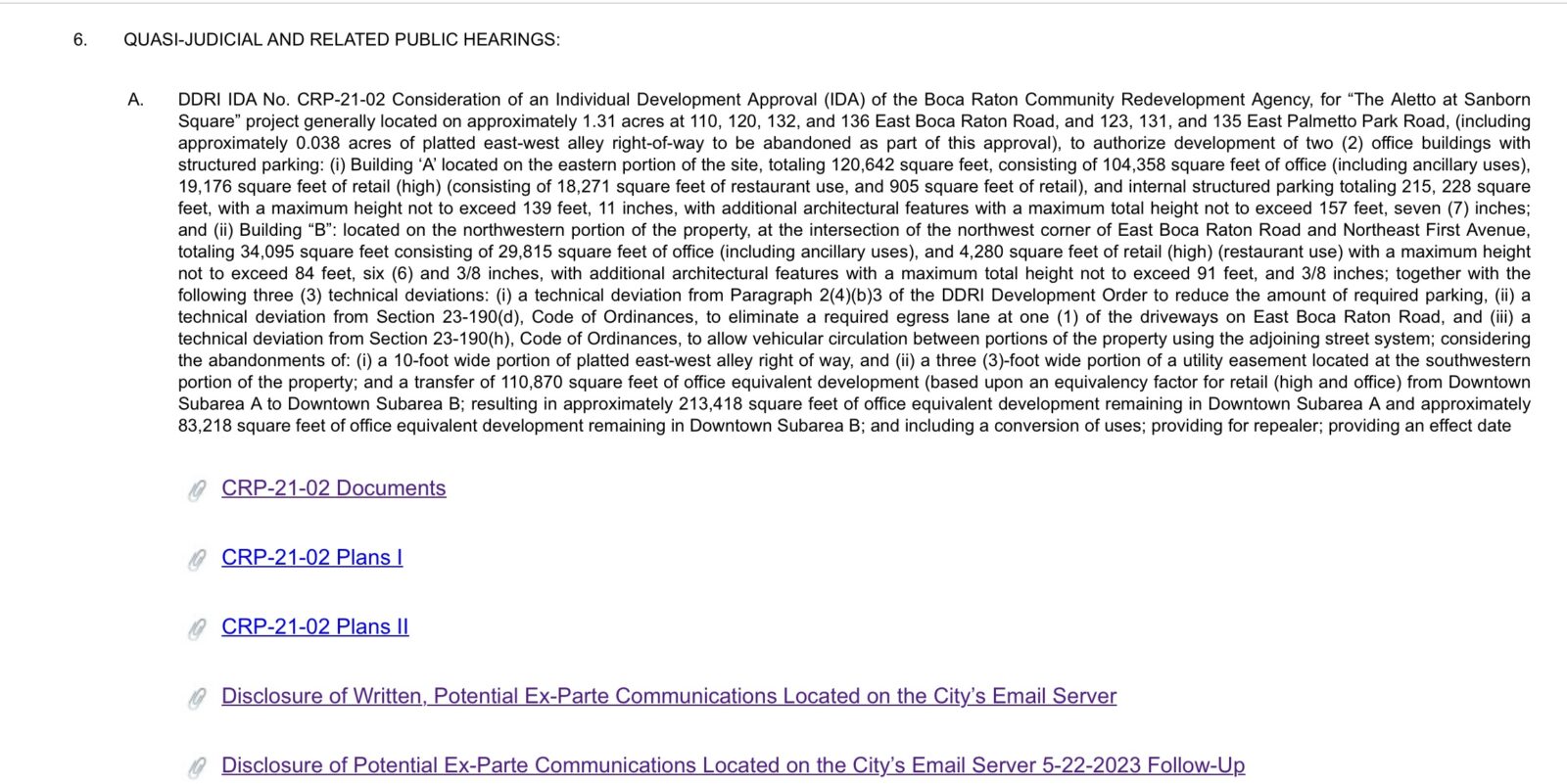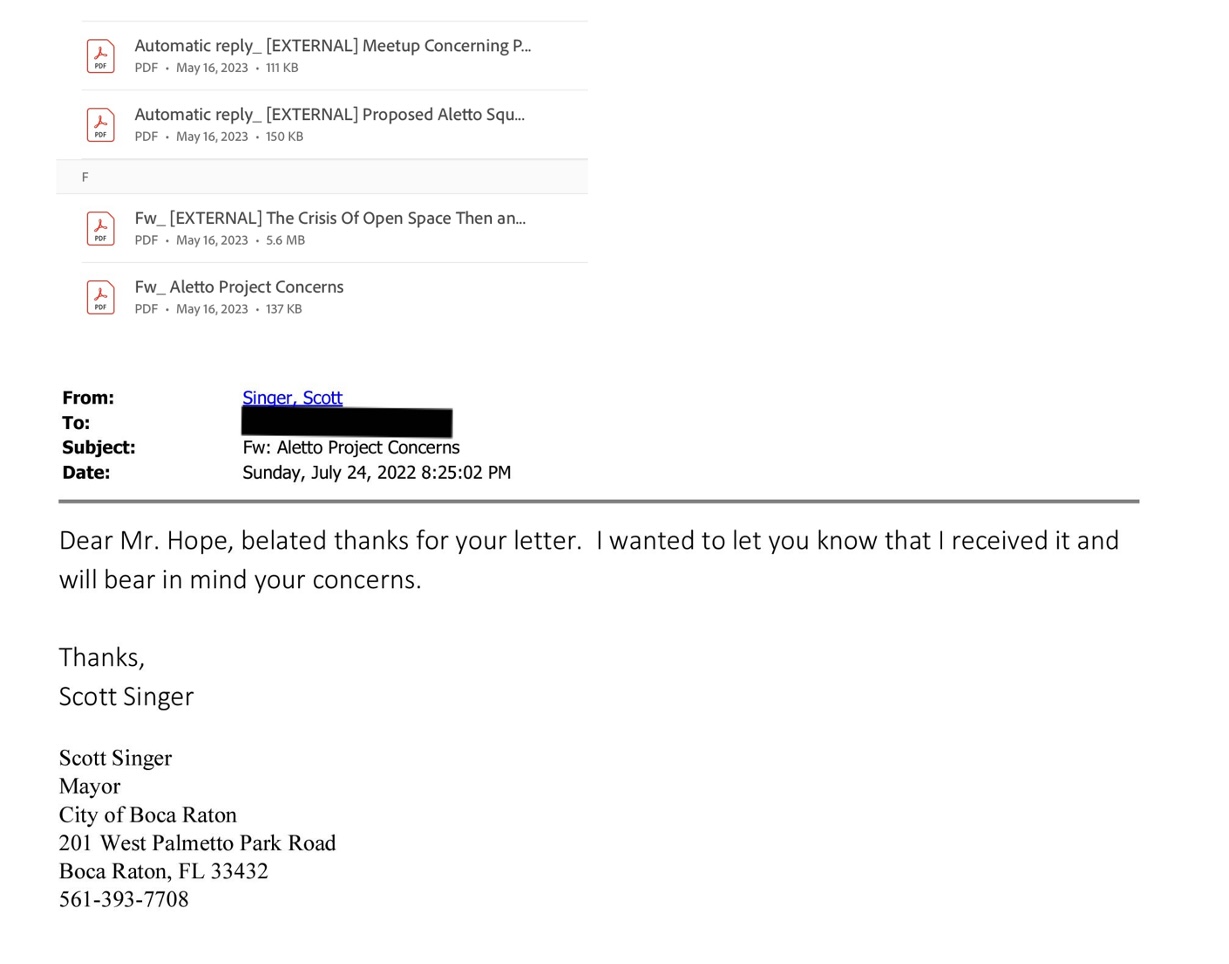City Council and CRA hearings have to be conducted as a quasi-judicial process to ensure fairness. But if you are involved in a project before either board, you need to watch carefully. Sometimes little breadcrumbs of information lead a path to show precisely how fair the process is.
Quasi-judicial means that even though a hearing is not conducted by a judge, it is still conducted in a judicial manner. They take evidence, listen to both sides of an argument, and make decisions based upon facts. That’s why people giving testimony have to be sworn in, and are subject to cross-examination.

While they are not governed by the Code of Judicial Conduct (CJC), they do follow its rules of professional conduct, and must obey all state and municipal rules in terms of the appearance of fairness doctrine. This is a rule of law that requires government decision-makers to conduct quasi-judicial hearings and procedures that are fair and unbiased in both appearance and fact.
Hearings are required to follow Freedom of Information and Sunshine Laws
They are further governed by the Freedom of Information Act (FOI) and the Sunshine Law. Florida’s FOI law allows anyone to request copies of government documents, including emails. If you send an email to an official, that email becomes public record. Anyone requesting information would be able to see your email. This applies to most communications to and from the city. To submit a FOI request, click here.
The Sunshine Law prohibits two or more officials from privately discussing a matter to come before them. Two or more city council members, for example, cannot meet privately to discuss a pending proposal. The meeting has to be open to the public, reasonable notice must be given, and minutes must be taken. (Unfortunately, you just have to take their word for it.) Thus, Boca Raton makes available videos of all board meetings with decision-making functions. To see the agendas and recordings of meetings, click here.
Quasi-judicial prohibits one-sided private communications
In addition, and most importantly, the officials voting on a project are prohibited from ex-parte communications. This is a hallmark of a quasi-judicial process. These are oral or written substantive discussions between a decision-maker and just one party in a formal proceeding outside of a public hearing. For example, one party in the proceeding cannot meet privately with a judge to discuss a case. Officials can not voice support for either side, or indicate any way how the applicant can improve their chances of getting approval. They cannot give advice, take any active or advisory role in the project. Before each hearing, officials have to disclose all written ex-parte or potential ex-parte communications. These are usually available to be downloaded from the city’s website along with the meeting agenda.

Downloading a disclosure file shows you a list of documents in PDF format. Click on the document you want to read to open it.

Council members also need to recount recent and oral ex-parte communications at the beginning of the meeting. And at all times prior to or during hearings, they have to act in fairness, listen to and consider all sides. So officials need to be very careful of what they say, to whom, and where.
Protecting your interests
Keeping good records is important if you get involved in a project. As a former journalist, I learned to keep my notes, emails, text messages, and phone logs regarding a potential story. Even if someone asks me to delete an email, which was requested of me relating to Aletto, or keep it off the record, I maintain everything.
I also learned to look for inconsistencies and patterns. Statements that contradict previous statements, excuses and justifications that really make little sense. Sudden switches in direction. Statements and decisions that appear must have been decided outside of Sunshine.
I think of these items as breadcrumbs. When you see breadcrumbs on the floor they could just be a sign of sloppiness. But they could be showing a path to something, and perhaps something significant. Remember, the fairness doctrine requires officials to be fair in both appearance and fact.

Where do the breadcrumbs lead?
For example, with the Aletto Square project, I was aware of some issues that were breadcrumbs challenging its fairness in appearance. Each, individually, could just be benign, or sloppiness in adherence to the fairness doctrine or of the Sunshine law. But sloppiness in following the law doesn’t relieve the transgressors of liability. However, when I started looking at these instances as a group, I saw these breadcrumbs might be a path to potentially something significant.
Whether or not these breadcrumbs lead to a failure of fairness of fact may never be determined, unless at a judicial level. But in later articles I may explain these instances, these breadcrumbs, in detail. So you can decide for yourself where these breadcrumbs may lead.

